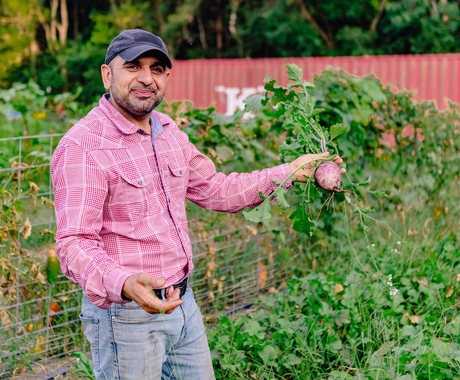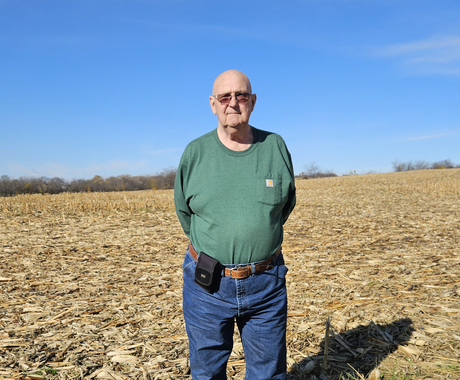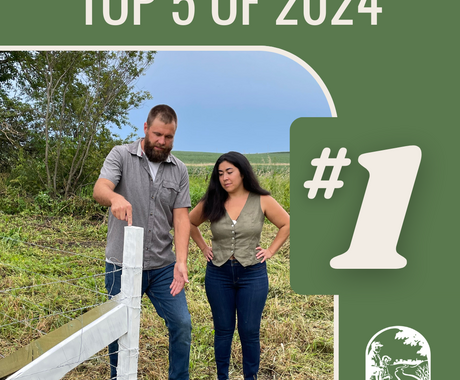One of the Center for Rural Affairs’ many goals is to provide resources to women farmers. Through that work, the Center has been able to offer scholarships to women farmers, some who used that opportunity to attend the Women, Food, & Ag Network’s (WFAN) annual conference.
Each year, women farmers, urban gardeners, environmental educators, community activists, academics, and others who care about food and our environment come from all over to attend the WFAN annual conference. While there, women form connections, give each other information, and receive the encouragement they need to be effective practitioners and supporters of sustainable agriculture and healthy localized food systems.
In 2017, the Center helped eight women attend the WFAN annual conference in Madison, Wisconsin. The national Sustainable Agriculture Research and Education (SARE) program provided matching funds to assist in providing scholarships for these women.
Kim Andersen, of Brighton, Iowa, was one of those fortunate recipients, and has continued to utilize the information she gleaned for the last three years.
“It was inspiring and empowering to see that many women who are involved in agriculture and food,” she said. “I made some great connections.”
Her experience at the WFAN conference led Kim to attend and partake in similar events and conferences since then.
“I get something different from each conference, and really each session I attend,” she said. “I especially love the networking before and after sessions.”
Kim’s experiences have contributed to her gaining the knowledge needed to begin the evolution of her blueberry farm into a “you pick” farm in 2019.
“The demand for organic blueberries is strong,” she said. “I still believe strongly in organic farming. My view of agriculture and various practices did not change, but rather was reinforced after attending WFAN—it is nice to be around like-minded individuals.”
As we see the effects of the coronavirus pandemic, Kim insists it’s more important than ever for farmers to continue expanding their knowledge through conferences like WFAN.
“I would like to think that the pandemic may have helped raise awareness of our broken food and farming system in this country,” she said. “More people than ever before are interested in buying local and buying direct from a farm, which is a positive. I hope the recent interest is not only brought on by the pandemic but also by people paying more attention in recent years.”
The farmer feels what she’s gained from attending these events is more than she expected, and encourages others to take the same chance.
“I was so empowered after attending WFAN,” said Kim. “I used to worry about being a woman in a man's world, but have moved past that now. My advice is attend meetings and conferences, whatever you can afford. Listen and ask questions, even if all of that has to be done virtually now. I still can’t thank the Center enough for the scholarship that started it all for me.”
Though the Center for Rural Affairs is not currently offering scholarships, the organization’s work and goals coincide with the four goals of the WFAN annual conference:
- Build and strengthen anti-oppression knowledge, initiatives, and action through training, reflection, and collaboration.
- Provide practical farm-based educational opportunities for beginning through seasoned agrarians, landowners, and food systems advocates.
- Increase our capacity as land caretakers to define, create, and implement practices rooted in ecological justice.
- Offer intentional spaces for critical dialogue, networking, coalition building, and story sharing.
This year’s conference will be held virtually, Nov. 6, at 10 a.m., through Nov. 7, at 5 p.m. Click here for more details and to register.
Top photo: A group photo of some women who attended the Women, Food, & Ag Network’s (WFAN) annual conference in 2017.
Bottom photo: Kim Andersen and her husband at Blueberry Bottom, their blueberry "you pick" farm. | Photos submitted






